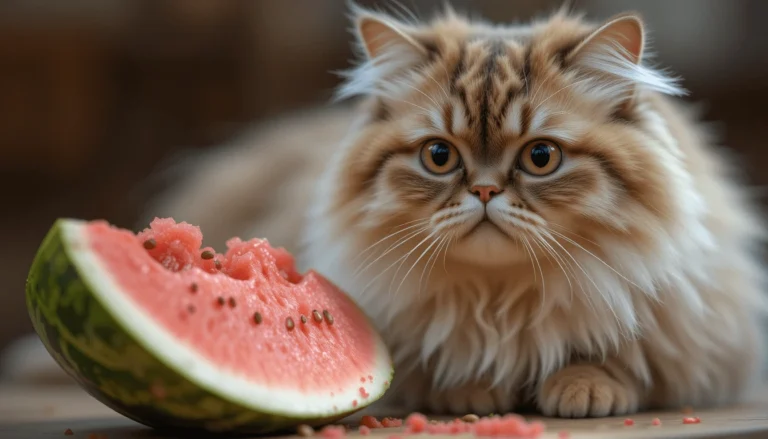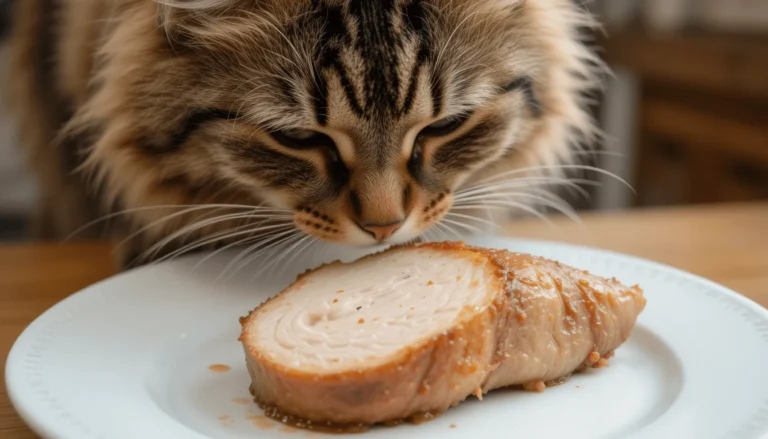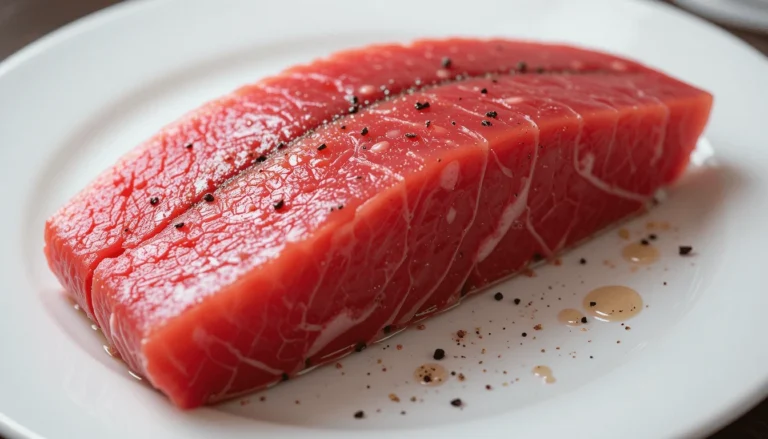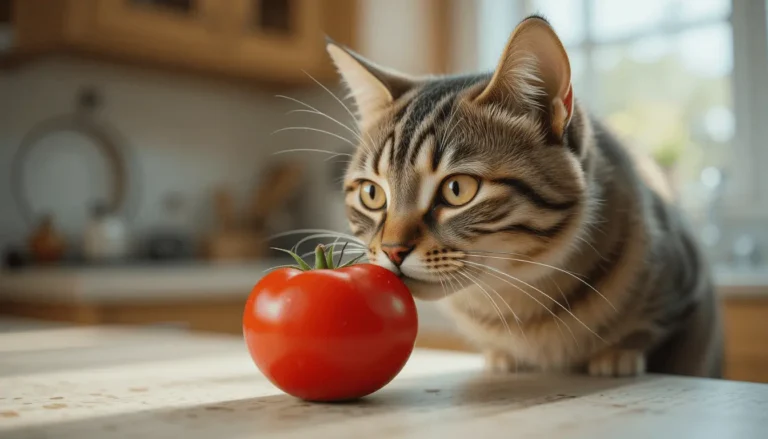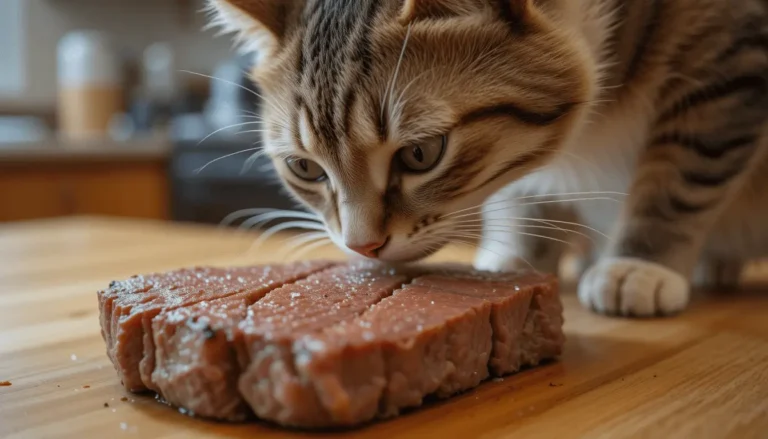Can Cats Eat Cheese? The Truth Every Cat Lover Should Know
Introduction
The Curious Case of Whiskers and the Stolen Cheddar
It was just another Tuesday night when Sarah discovered her tabby cat, Whiskers, standing triumphantly over a demolished cheese plate. Strings of melted cheddar clung to his whiskers like evidence at a crime scene. “How much did he eat? Can cats eat cheese safely, or is this dangerous?” she panicked, frantically Googling as Whiskers licked his paws with zero remorse.
Like millions of cat owners, Sarah assumed a little cheese was harmless—until the aftermath of gurgling tummy sounds and, well… litter box chaos. Turns out, that adorable cheese-stealing habit might come with hidden consequences.
In this vet-approved investigation, we’ll answer “can cats eat cheese?” once and for all—with shocking research from feline nutritionists, real-life case studies, and safer alternatives your cat will love even more than dairy. (Spoiler: The answer isn’t what most pet parents expect.)
The Great Cheese Debate: Is It Safe for Cats?
While that adorable cheese-stealing antics might go viral on TikTok, the reality isn’t as picture-perfect. Let’s break down the science:

1. The Lactose Problem (Why Most Cats Can’t Digest Cheese)
According to VCA Animal Hospitals, approximately 60-65% of adult cats lose the ability to properly digest lactose after weaning. This means that:
- Even small amounts can cause digestive upset
- Symptoms typically appear within 8-12 hours
- Some breeds (like Siamese) may be more tolerant
2. Hidden Hazards in Every Bite
The ASPCA Animal Poison Control warns that cheese presents multiple risks:
- High fat content (can lead to pancreatitis)
- Excessive sodium (dangerous for cats with heart/kidney issues)
- Additives (garlic, onions, or herbs in some cheeses are toxic)
3. The Exception to the Rule
Per Cornell Feline Health Center, some cats might tolerate:
- Aged, hard cheeses (like Parmesan)
- Goat cheese (lower lactose)
- But only in pea-sized portions no more than once weekly
When Cheese Attacks: Recognizing the Warning Signs
Even if your cat has eaten cheese before without issues, reactions can develop over time. Here’s what to watch for:
1. Immediate Digestive Distress
The International Cat Care Organization reports these common symptoms:
- Watery diarrhea (often within 2-4 hours)
- Loud gurgling stomach noises
- Excessive gas or bloating
2. Allergic Reactions
While rare, the Journal of Feline Medicine documents cases of:
- Skin redness between toes
- Excessive face rubbing
- Swollen lips or eyelids
3. Long-Term Health Consequences
A 2022 study published in the Journal of Veterinary Internal Medicine found that cats fed dairy regularly had:
- 23% higher obesity rates
- Increased incidence of urinary crystals
- Higher diabetes risk factors
Cheese Alternatives That Will Make Your Cat Purr
Why gamble with cheese when these vet-approved options exist?

1. Safe Dairy Alternatives
The American Association of Feline Practitioners recommends:
- Lactose-free cat milk (Whiskas Catmilk is specially formulated)
- Plain kefir (fermented, so lower lactose)
- Fortified nutritional gels (Tomlyn Nutri-Cal)
2. Protein-Packed Superstars
Top-rated by CatFoodDB:
- Freeze-dried chicken hearts (98% protein)
- Salmon flakes (rich in omega-3s)
- Commercial treats (Greenies Dental Treats)
3. The Absolute No-Go List
Bookmark this Pet Poison Helpline reference for toxic foods including:
- Blue cheeses (contain roquefortine)
- Cheese with garlic/herbs
- Moldy cheese of any kind
Conclusion : Should Cheese Be Off the Menu ?
While the occasional crumb of hard cheese won’t likely send your cat to the ER, the consensus among veterinary nutritionists is clear: cheese offers no nutritional benefits to felines and poses measurable risks.
For those special treat moments, consider healthier alternatives that won’t gamble with your cat’s digestion. After all, isn’t your feline friend’s health worth more than a momentary cheese high?
So tell us—what’s your cat’s favorite safe treat that makes them forget all about cheese?
FAQs
1. Can cats eat cream cheese?
Answer: While cream cheese has slightly less lactose than hard cheeses, its high fat content makes it risky. The Pet Poison Helpline notes that just 1-2 teaspoons could cause pancreatitis in sensitive cats. If you must share, opt for plain, low-fat versions and monitor for vomiting or diarrhea.
2. Is mozzarella safer for cats?
Answer: Mozzarella is lower in lactose than cheddar, but still problematic. According to Tufts Veterinary School, the high sodium content in processed mozzarella (like pizza cheese) can dehydrate cats. Fresh mozzarella in tiny amounts is less risky but offers no health benefits.
3. What about cheese-flavored cat treats?
Answer: Products like Temptations Cheese Flavor use artificial cheese flavoring, which is generally safe. However, check the ingredients for:
- Real dairy (may trigger lactose intolerance)
- Onion/garlic powder (toxic to cats)
- Excessive carbs (linked to feline obesity)
4. My cat ate blue cheese—what should I do?
Answer: Contact your vet immediately. Blue cheeses contain roquefortine C, a mold toxin that can cause:
- Muscle tremors (within 30 minutes)
- Seizures (rare but serious)
- Hyperthermia (ASPCA reports 200+ cases yearly)
5. Can kittens eat cheese?
Answer: Surprisingly, kittens under 8 weeks may tolerate small amounts of cheese better than adults (they still produce lactase). But the International Kitten Care Guidelines warn that cheese should never replace kitten formula, which has essential nutrients for growth.
6. Are cheese rinds or wax coatings safe?
Answer: No. The FDA’s Animal Health Division has flagged cases of:
- Intestinal blockages from rinds
- Choking hazards from wax
- Chemical preservatives (like natamycin on Gouda)
Wondering about other feline diet concerns? Check out our ” Safe Or Not ? Cat Food Guide ” for expert advice.



